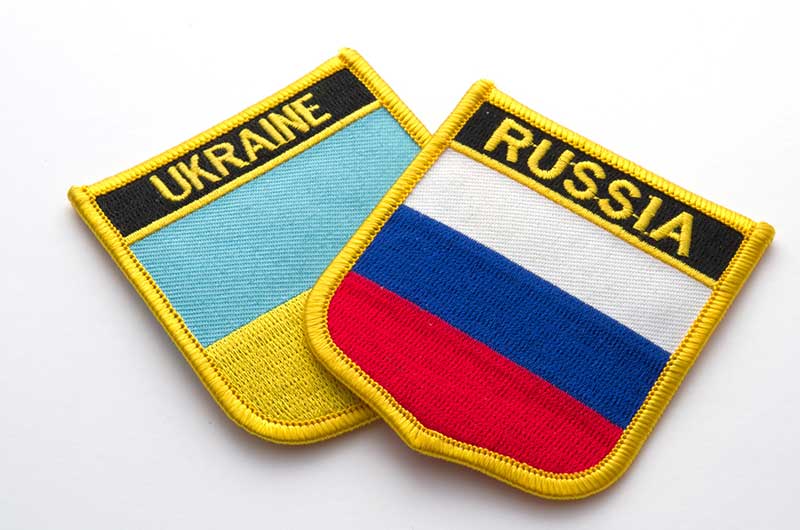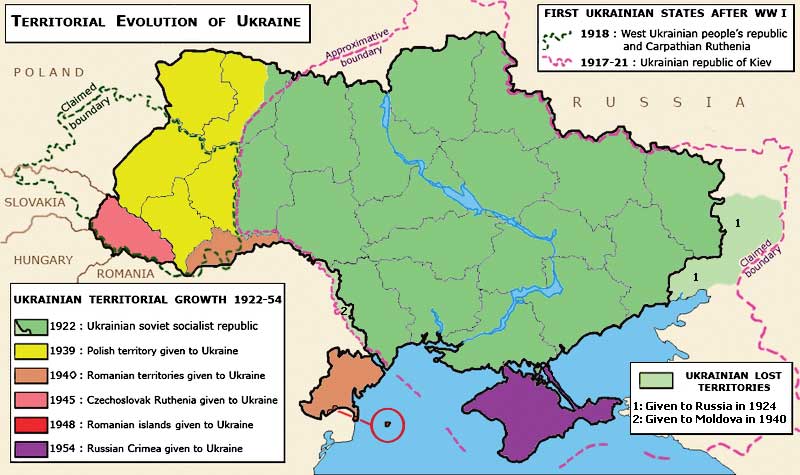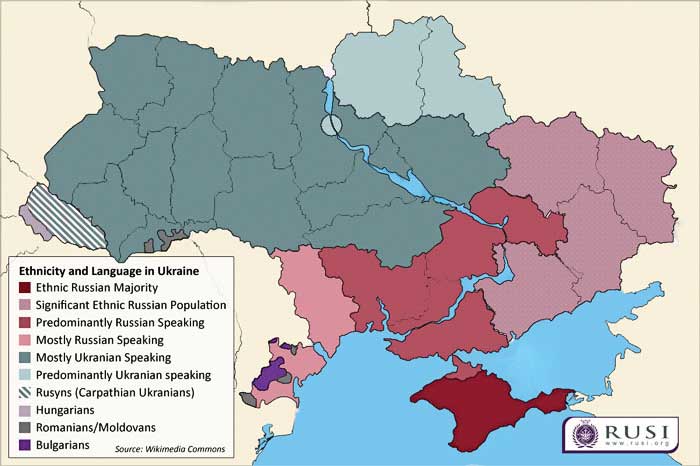I recently read the excellent book by Serhii Plokhy “The Last Empire: The Final Days of the Soviet Union” which is probably the most comprehensive and detailed account yet of the dramatic events in 1991 which led to the sudden dissolution of the Soviet Union. It offers some interesting perspective on the back story of Russian nationalism and expansionism under Putin. The new material from Plokhy’s book needs to be set in a bit of an historical context.
Some background history
By the beginning of 1991 Gorbachev’s reforms were causing the disintegration of the old system of centralised political political control by the Communist Party and of the planned economy. The result was an escalating political and economic crisis. Following the decision in February 1990 to allow multi-party elections and the removal of Article 6, which guaranteed the monopoly of the Communist Party of the Soviet Union a significant amount of sovereign power had been passed to the various constituent republics of the Soviet Union and nominally free elections had occurred in most of the republics. This had resulted in both nationalist and dissident non-communist parties emerging and winning significant representation in local government and in republican parliaments, bodies which up until then had been little more than transmission belts for orders from Moscow centre. Boris Yeltsin, an unpredictable populist politician who had been removed from the Central Committee by Gorbachev emerged under the perestroika reforms as one of Gorbachev’s most powerful political opponents. On 29 May 1990 he was elected the chairman of the Russian Supreme Soviet. On 12 June 1991 he was elected by popular vote to the newly created post of President of the Russian Soviet Federative Socialist Republic (RSFSR), at that time one of the 15 constituent republics of the Soviet Union. Yeltsin emerged as a powerful and distinctly Russian political voice.
In August 1991 hardliners in the Party, the KGB and the Army attempted to overthrow Gorbachov in a bumbling coup which disintegrated within days. Yeltsin position was hugely strengthened when he publicly led the resistance to the coup in the streets outside the Russian White House. The collapse of the coup led to the banning and dissolution of the communist party. The Russian group around Yeltsin moved to take control of the Union governing apparatus. In the period immediately after the coup both Gorbochev and the Yeltsin Russian group both sought to maintain, strengthen and control the old USSR union political apparatus of central control. However the Union was disintegrating.
Ukraine declares for independence and Moscow plays the ethnic card
Within days of collapse of the coup in Moscow the Ukrainian elites and parties represented in the Ukrainian parliament voted to call a referendum on complete independence from the Soviet Union. This came as complete shock to both the Yeltsin and Gorbachov groups battling for control of the Union state apparatus in Moscow. Without the Ukraine the old Union was dead.
This is where the story gets interesting in relation to Russia various border disputes and conflicts because the hurried, almost panic stricken, responses from Moscow to the Ukraines moves towards independence reveal how the Russians viewed the real ethnic borders of the Soviet Union and contain many telling references to precisely those areas that Putin has sought to annexe.
In response to the announcement of the Ukrainian independence referendum Boris Yeltsin ordered his press secretary, the forty-two-year-old economist-turned-journalist Pavel Voshchanov, to prepare a statement to the effect that “if any republic breaks off Union relations with Russia, then Russia has the right to raise the question of territorial claims.” This was a complete reversal of the previously announced policy adopted only two days earlier vis-a-vis Baltic independence.
The statement released to the press read as follows: “The Russian Federation casts no doubt on the constitutional right of every state and people to self-determination. There exists, however, the problem of borders, the nonsettlement of which is possible and admissible only on condition of allied relations secured by an appropriate treaty. In the event of their termination, the RSFSR [Russia] reserves the right to raise the question of the revision of boundaries.” The statement did not name the republics with which Russia might have territorial disputes but when Voshchanov was asked during the press conference which countries Yeltsin had in mind, he responded by naming Ukraine and Kazakhstan. He recalled later that the contested areas included territories that had earlier belonged to Russia: the Crimea and the Donetsk region of Ukraine, Abkhazia in Georgia, and norther territories of Kazakhstan.
It wasn’t just the Yeltsin group that were raising the issue of ethnically based order changes. The embattled Gorbachev, speaking at a session of the Soviet parliament that day, told the deputies that he would do everything in his power to keep the Union together. “There can be no territorial problems within the Union,” declared Gorbachev. “But their emergence cannot be ruled out when republics leave the Union.” There were some sinister notes in Gorbachevs appeals for Russo-Ukrainian unity. Again and again in his private conversations with aides and foreign leaders, as well as in his public appeals, he threatened Ukrainians with the possibility of ethnic conflict, de facto raising tensions, if not inciting actual conflict, among Ukraine’s minorities.
Using the ethnic card to derail the referendum was an idea proposed to Gorbachev by his adviser Georgii Shakhnazarov in a memo of October 10, 1991. Shakhnazarov was disappointed that after the disintegration of the Communist Party there was no political force in Ukraine prepared to stop what he called the “Galician nationalists.” He was also unhappy that the Russian leadership had decided not to press territorial claims against Ukraine. Shakhnazarov proposed that Gorbachev “not only publicly repeat but also lend an official tone to Russia’s position with regard to the Crimea, the Donbas, and southern Ukraine.” He wrote, “It should be stated plainly and clearly, without constraint, that those regions are historical parts of Russia, and it does not intend to renounce them if Ukraine should wish to cease being part of the Union.”
Voshchanov’s statement was welcomed also by leaders of the Russian democratic camp. Many believed that Ukrainian and Belarusian independence amounted to little more than an effort by local party elites to cling to power, and in the struggle against those elites, democracy had to show its teeth. Gavriil Popov, the democratic mayor of Moscow and Yeltsin’s close ally, appeared on central television to claim that he supported Yeltsin’s position on secessionist republics and that border questions would have to be decided by referendum in the border regions. He referred specifically to the Crimea, Odesa, and Moldovan Transnistria.
Georgii Shakhnazarov proposed to Gorbachev that he play the ethnic card to stem the growing pro-independence tide in Ukraine, and Gorbachev never tired of mentioning the ethnic question in the Ukraine to anyone who would listen. While pollsters predicted a strong vote for independence in Ukraine as a whole, the degree of support varied from region to region. Support was strongest in Galicia, which had formerly been ruled by Austria and Poland. In Ternopil oblast in Galicia, more than 92 percent of those polled favored independence. Kravchuk’s native Volhynia, which had been part of Poland during the interwar period but never part of Austria-Hungary, was not far behind, with close to 88 percent of the projected vote favoring independence. Kyiv and central Ukraine had jumped on the independence bandwagon as well, but support for independence in some of Ukraine’s eastern and southern provinces was barely above 50 percent. Those were the regions that had been fully colonized only in the nineteenth century under the rule of the Russian Empire and had experienced a major influx of ethnic Russians in the Soviet period.
Later in November 1991 when Gorbachov was in conversation with US president George Bush, who was under pressure domestically to announce that the US would recognise the outcome of the independence referendum, he once again raised the issue of ethnic Russians in the Ukraine in alarming terms.
He brought up events in Yugoslavia. “If someone in Ukraine says that they are seceding from the Union, and someone says they are supporting them,” said Gorbachev, alluding to Bush’s readiness to recognise Ukraine, “then it would mean that 12 million Russians and members of other peoples become citizens of a foreign country.” He indicated that Yeltsin’s claims to Ukrainian regions bordering on Russia and the situation of Russian minorities in the Crimea and the Donbas coal region of eastern Ukraine were potentially explosive issues. Gorbachev was following the recommendations given him on Ukrainian minorities by Georgii Shakhnazarov the previous month. Anatolii Cherniaev, who was present during the conversation, summarized Gorbachev’s argument as follows: “Independence is not secession, and secession is Yugoslavia squared and raised to the tenth power!”
In the end there was a majority yes vote for independence across all regions of the Ukraine, the republic declared independence and the Soviet Union was no more.
Its interesting to note that almost all the areas mentioned as being ethnically part of Russia by the various political camps in Moscow in 1991, the Crimea and the Donetsk region of Ukraine, Abkhazia in Georgia and Moldovan Transnistria, have all subsequently been more or less annexed by Russia though its strong military support of local nationalist uprisings. The only territory in the list of ethnically problematic areas not yet annexed is the northern territories of Kazakhstan but there are mounting tensions, and continued ethnic violence in the region. About a quarter of Kazakhstan’s citizens are ethnic Russians, and many have the same grievances as their compatriots in Ukraine. Some say they feel pressured to speak Kazakh, the use of which has spread in recent years. Few Russians are represented in state leadership positions. There is apprenhension about Moscows intentions and about what happens when the rule of the 74-year-old President Nursultan Nazarbayev ends. Nazarbayev has done little to prepare for a successor amid widespread speculation that this term will be his final one. Kazakhs and Russians alike worry about strife when he leaves office.



